ATP contributor Mast Qalandar is a chronicler par excellence of ‘All Things Islamabad’ (here, here, here, here, here). His writings on Islamabad constantly reminds us – even those of us who have lived long in the Capital city – that Islamabad is much more (and also much less) than what we think it is.
Indeed, like any other city, Islamabad is a city of many faces. That, in itself, is not unusual. What is unusual, and worthy of note, is that too many of these faces of Islamabad are totally hidden from the public discourse on the city. Including from the discourse of those who live there. This post is about one such face.
The particular face you see above is that of Masoom Bibi. It is captured here by photojournalist B.K. Bangash of AP. I have written about B.K. Bangash before and I know him from the Zia-ul-Haq days when I was a school kid writing on sports for The Muslim in Islamabad and he was already capturing amazing human sentiments on film like the ones he captures here.
To understand this face of Islamabad look also at the other photographs in the series. They all relate to the cost of living in Pakistan and how the poor in Pakistan are coping with the recent hikes in the price of everything in Pakistan. The AP caption reminds us that “in the recent months milk prices go to Rs 42 per liter from 30, prices of rice sky rocketed to double, a 20 kilograms bag of wheat flour jumped to Rs. 350 (US$5.80) from the usual price of Rs. 230 (US$3.80) and also flour became a scarce commodity.”
What is immediately striking here is that this, too, is Islamabad. This is not the Islamabad of politicians, of bureaucrats, of foreign dignitaries, of buzzing streets. This is the Islamabad of Masoom Bibi.
This is an Islamabad that we ignore. An Islamabad we deny. An Islamabad we would rather wish away. Just like we would much rather ignore, deny and wish away Masoom Bibi. But here is a reality that we cannot ignore, cannot deny, cannot wish away. Masoom Bibi is real. Her challenges of daily survival are real. And so is her Islamabad.
At the end of the day, it is not just about this other Islamabad or even about Masoom Bibi alone. This reality is everywhere around us (here, here here, here, here, here, here). There are Masoom Bibi’s everywhere around us. It is all too easy to get worked up about politics. About ideology. About religion. But the lives of and the survival challenges of ordinary people are too “ordinary” for us to get excited about.
Today, we will look at Masoom Bibi with a tinge of discomfort in our heart, and we will look away. Waiting for her – or at least this post – to disappear. Tomorrow will be another day. A day without Masoom Bibi to haunt us. Tomorrow, our passions will return and the firebrand pontificates of various political and religious and ideological ilks will invade this blog again telling everyone else just how right they themsleves are and just how wrong everyone else is.
Tomorrow, we will all secretly wish, Masoom Bibi will be gone. Except, she won’t!
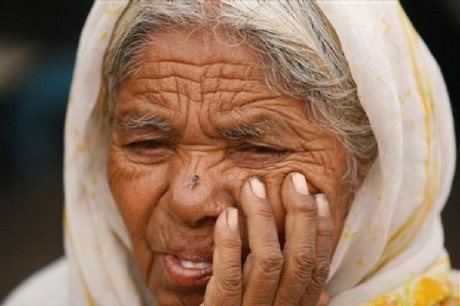
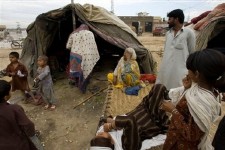
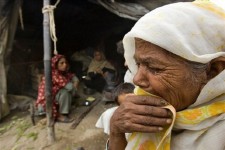
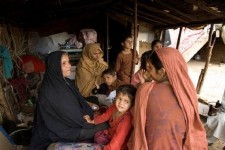
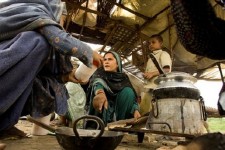



















































thanks for a good informativ article. thanks a lot
It is heart warming to see ATP and Professor Najam returning to its credo……the people. But to put things in perspective, the reality is that with the exception of few thousand visitors of this site, most Pakistanis will never get to see this article. Visitors of ATP are a very narrow and select group that is lucky enough to have knowledge of English language and access to computers and Internet. It is like members of a small group talking among themselves. So what is the point of articles like this many ask.
Nothing, unless the argument and the message of ATP and Adil is carried one step further.
Those of us who are touched by this exercise and agree with Dr. Najam, it is incumbent upon us to carry the message further in our own way and raise the general conscience and public awareness with ultimate aim of eradicating poverty and illiteracy among our own people. Unless on our turn, the readers of ATP carry the ball further, we will never reach the goal line. I know most of us are capable of doing it. The question is: “Are we willing to do it?”
The indifference manifested by some on the thread rather surprises me.
But, okay, if you want to continue to feed religious fanaticism in Pakistan, being indifferent to the majority of citizens which also happen to make up this suffering underclass is the way to do it.
The poor are not stupid but neither do they wish to starve indefinitely. When all hope in politicians and institutions is truly gone, people turn to revolutionaries. And in Pakistan’s environment those would be……?
thought provoking isnt it? There is no harm in discussing politics and poverty at the same time. Afterall, the solution to the poverty has to be political indeed.
And then it is important to talk about it, to show how concerned we all are and mind you, when you go to talk to them, and take their pictures, and want to talk about them, the poor are not embarassed at all. They infact feel the warmth of it. Of course it is not enough, of course it is not the end nevertheless it is important.
It takes time to build solid convictions but the things start from here.
If you trace how much a rich industrialist makes all the way down to how much he pays his workers, the contrast is startling. The poor worker can hardly get his required food intake for the day after slaving all day. The rich have tremendous money to throw. But they won’t pay more to their workers.
Even middle class homes will not increase the salaries of their cook/driver/maid/ etc. though they too would have money to spare. All those who use the services of the poor should pay more esp when prices rise.
The govt too can bully the rich and fix wages according to inflation. Votes come from the poor, not the rich.